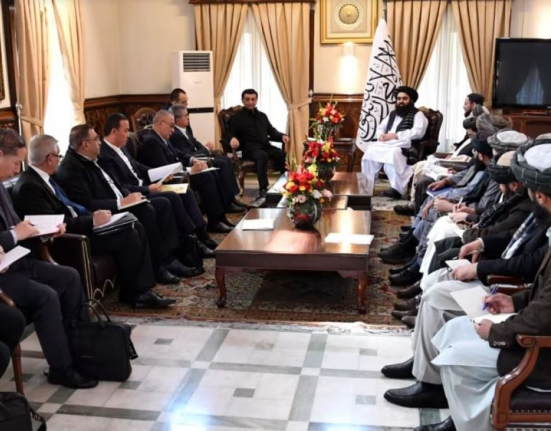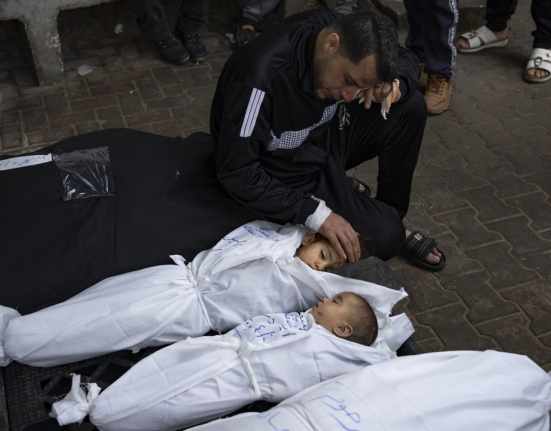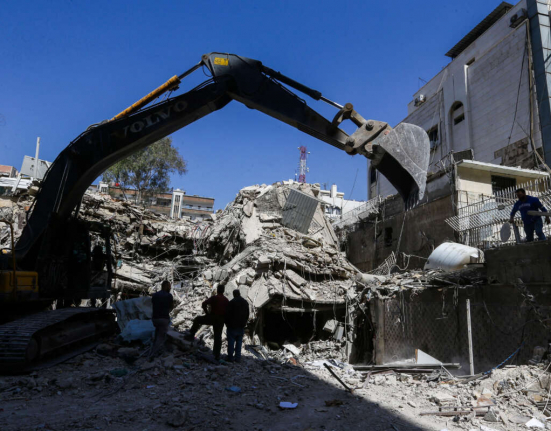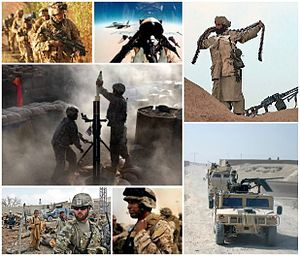
By Ben Wolfgang , The Washington Times
President Biden is racing to find partners in Central Asia willing to host U.S. troops, equipment and intelligence assets that the Pentagon says are vital to keep al Qaeda, ISIS and other extremist outfits from launching deadly attacks out of Afghanistan, even as China and Russia expand their power in the strategically vital region and work to elbow out Washington.
More than two months after the last troops left Afghanistan, Pentagon and State Department officials have been tight-lipped about behind-the-scenes talks with Uzbekistan, Tajikistan and other nations that represent the best long-term candidates to host American forces and equipment. Among other things, a base in one of those countries would likely serve as a U.S. hub for drone strikes against terrorists across the theater, including targets that are expected to appear in Afghanistan with the Taliban back in power.
U.S. manned and drone missions are currently organized out of bases in the Middle East 1,000 miles from the Afghanistan theater, often too far to make a difference when a target is sighted or a clash erupts. Taliban leaders are adamantly opposed to allowing U.S. and allied forces back into Afghanistan and insist they can deal with any terrorist operations in the country.
The U.S. struggle to secure a base in the region underscores a shifting global power landscape that has left Mr. Biden with limited leverage. The withdrawal from Afghanistan fueled a narrative that the U.S. is pulling back from the region, creating an even bigger window of opportunity for rivals that are eager to fill a power vacuum.
Indeed, some counterterrorism analysts say the White House has bungled the process and hasn’t proved it is more capable than its leading global rival, China, at forging military alliances with governments in Central Asia. Russia’s significant sway and historical links in the region also complicate the U.S. effort. The Kremlin is privately and publicly lobbying Afghanistan’s neighbors to refuse entreaties from Washington.
The U.S and its allies “bear the main responsibility among foreign actors for normalizing life in Afghanistan since their presence actually led to the current situation …,” Deputy Russian Foreign Minister Sergei Ryabkov told reporters after meeting with U.S. Undersecretary of State Victoria Nuland for three days of talks in Moscow last month. “We strongly reaffirmed the unacceptability to Russia of any form of U.S. military presence in Central Asian countries,” he said, according to the Interfax news service.
Rising sense of urgency
The lack of presence in an unstable part of the world has lent a great deal of urgency to the U.S. search for a new base. Analysts warn that the current dynamic is untenable and carries major security risks, even though the Pentagon insists its “over-the-horizon” capabilities are sufficient.
“Flying drones from eight hours away in the Persian Gulf is not a long-term, durable solution. The Central Asian countries are geographically much better suited. It seems to me the Biden administration should be engaging with those countries to show how it is in their interest for the United States to conduct operations out of their territory,” said Nathan Sales, the State Department’s counterterrorism coordinator under President Trump. “The last thing those countries want to see is a resurgent al Qaeda that will threaten them. The last thing those countries want to see is a resurgent ISIS that will threaten them. The United States is in a position to help.
“If the Biden administration is serious about competing with China and about countering terrorism, they have to do at least as well as China has done at persuading Central Asian countries to grant military basing rights,” Mr. Sales said.
Indeed, China is rumored to be eyeing a military base in Tajikistan, though both nations have publicly denied that such an arrangement is imminent. Asked about those rumors two weeks ago, Chinese Foreign Ministry spokesperson Wang Wenbin said his nation does not operate a base in the theater, but he did not directly address whether China plans to build facilities near Tajikistan’s border with Afghanistan.
“I can also confirm that there is no Chinese military base in Central Asia,” he said on Oct. 29.
With concerns about Islamist terrorist groups targeting its western lands, China has made no secret of its desire to exert greater influence over Central Asia. Military expansion into the region would make sense in light of the Chinese Communist Party’s broader goal of supplanting the U.S. as the world’s most influential player.
While China is coy with its approach, Russia is direct. Russian Foreign Minister Sergey Lavrov has blasted the U.S. effort to set up bases of operation near Afghanistan.
Russia is “well aware of the Americans’ intrusiveness,” he said last week, according to Russia’s state-run Tass news agency. “I do not rule out that they will be pressing for the same aim from different sides.”
Pentagon officials also have discussed with their Russian counterparts the possibility of using facilities in former Soviet republics near Afghanistan, including Russian sites in Uzbekistan. That arrangement does not appear to have moved past the initial discussion phase.
U.S. officials are in talks with other regional governments, though the details are murky. Uzbekistan, which hosted American military assets during the early years of the U.S. war in Afghanistan, appears to be the leading candidate, with Tajikistan also under consideration.
The administration also thinks Pakistan could be a workable option.
“We are in conversations with Pakistan to keep the air line of communication open. We have also had conversations with Uzbekistan and Tajikistan,” Colin Kahl, the Pentagon’s undersecretary of defense for policy, told the Senate Armed Services Committee last week after lawmakers pressed him on America’s long-term counterterrorism strategy in and around Afghanistan.
Questions have been raised about what the Biden administration may be willing to offer in return for basing U.S. counterterrorism assets. Sen. Kirsten Gillibrand, New York Democrat, pressed Mr. Kahl on that question last week.
“We have some very specific ideas, but on that score … it is very sensitive,” he said. He told lawmakers he would discuss details in a classified setting.
The State Department also offered little clarity on where the effort stands.
“Fighting the scourge of terrorism is a global effort. We will continue to engage partners, allies, and key states around the world on how best to address it,” a State Department spokesperson said in a statement to The Washington Times. “Beyond that, we have nothing further to share regarding our deliberations on counterterrorism scenarios.”

President Biden is racing to find partners in Central Asia willing to host U.S. troops, equipment and intelligence assets that the Pentagon says are vital to keep al Qaeda, ISIS and other extremist outfits from launching deadly attacks out of Afghanistan, even as China and Russia expand their power in the strategically vital region and work to elbow out Washington.

















